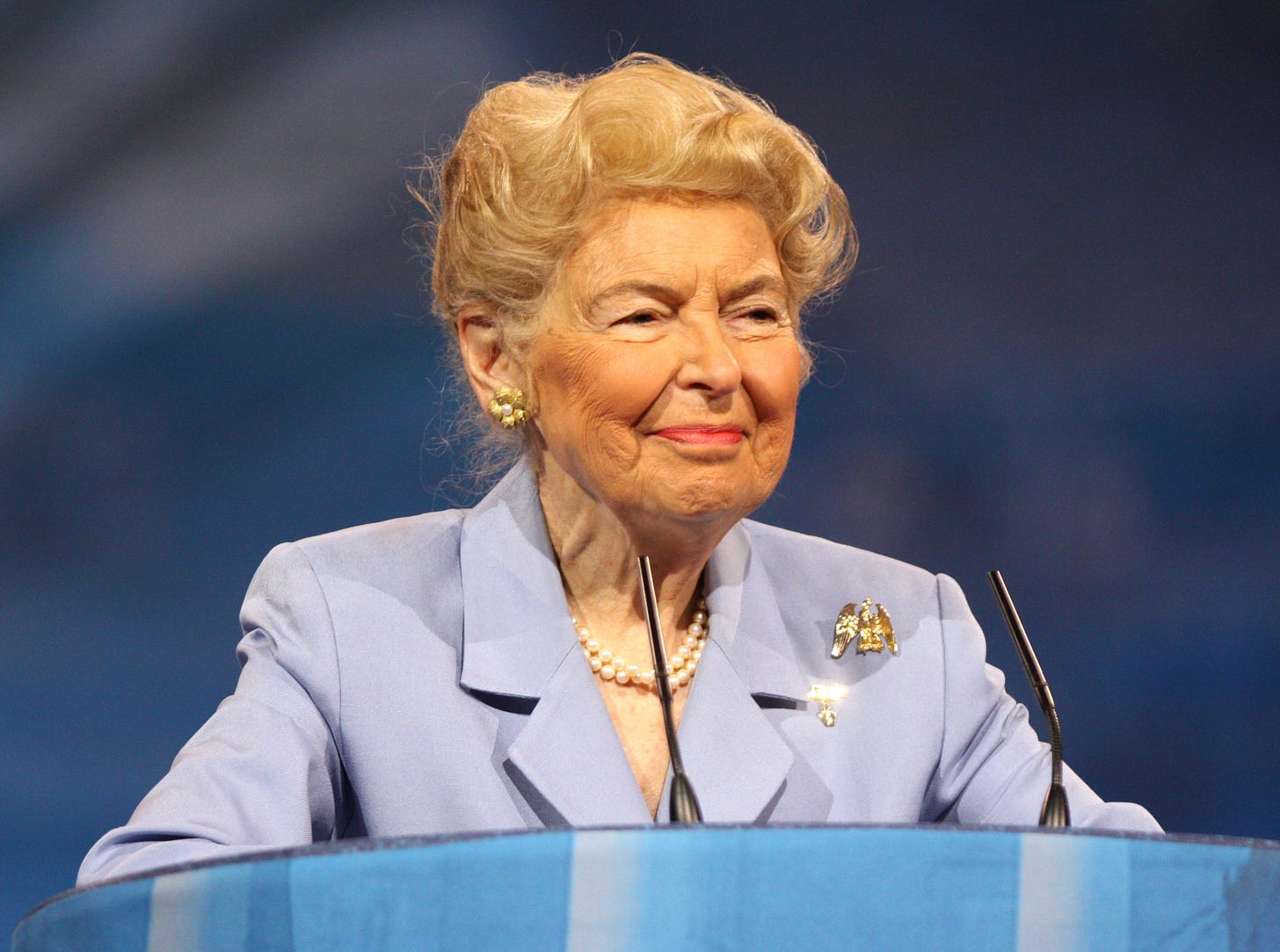What Phyllis Schlafly Knew
When she endorsed Donald Trump in 2016, Schlafly saw him as her last opportunity to end the kingmakers' stranglehold on the GOP
It’s subscriber-only Friday again, but if you share this post, a new person can read the whole thing for free, so please:

Don’t you miss Phyllis Schlafly? Even a little bit? Don’t you want to know things like: If she hadn’t already been dead on January 6, 2021, would she have repudiated Donald Trump? Or would she have slammed a fire axe into a side door and led a contingent of Proud Boys into the Capitol?
Most importantly, Schlafly rose to influence by popularizing the notion of election conspiracies. Her conservative manifesto, A Choice, Not an Echo, has a quote on the cover that is as fresh today as when it first appeared in May 1964. Under a picture of the author in perfectly styled hair and two strings of pearls, a caption promised to tell “the inside story of how American Presidents are chosen.”
She wasn’t talking about the primary system, which was not yet binding in 1964—and wouldn’t be until 1972. Comparing GOP leaders to Paris couturiers who “brainwash” unthinking female consumers, Schlafly declared in the book’s introduction that elites had stolen the presidential nominating process from the people. Between 1936 and 1960, she wrote, “a few secret kingmakers based in New York selected Republican presidential nominees…and successfully forced their choice on a free country where there are more than 34 million voters.”
In the spring of 2016, as Donald Trump’s unexpected electoral strength potentially led the Republican Party into its first contested convention since 1976, this self-published book, which Schlafly and her husband distributed from their garage during the 1964 campaign season, became more relevant than ever. How would the GOP candidate be chosen, and by whom? Would primary candidates who had not managed to capture more than a handful of delegates be able to manipulate the rules to take the nomination away from someone who they thought of as a lout? Trump's aspirational rival, Texas Senator “Lyin’” Ted Cruz tried, although his attempt to harvest delegates through his skillful use of existing party rules failed. So did elements in the national GOP leadership, which had two opportunities to shift Trump delegates to another candidate before formally convening the nominating convention.
In the end, the voters who rallied behind Trump did not “echo” the choice of the Republican kingmakers, but those kingmakers were still there. And their failure to thwart the will of the voters was a seismic shift that foreshadowed how they would fall in line after Trump was elected.
Keep reading with a 7-day free trial
Subscribe to Political Junkie to keep reading this post and get 7 days of free access to the full post archives.



